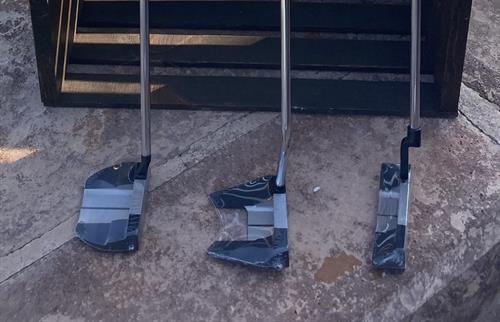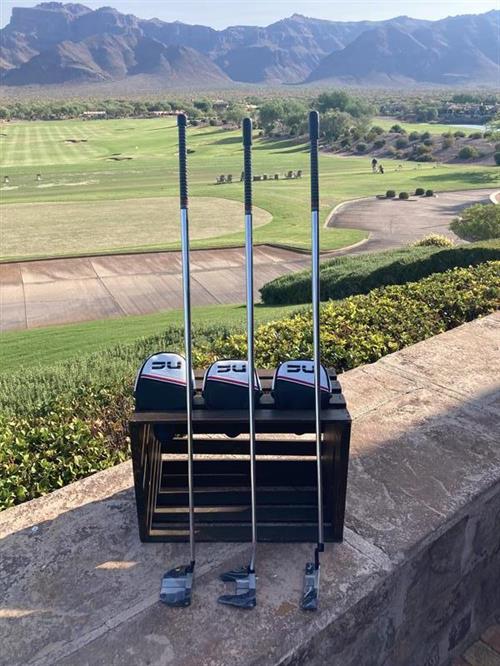Choosing The Right Putter For Your Game
Today, golfers have more club options than ever before and choosing the right clubs for your game can be a daunting task. Many golfers are brand loyalists while others choose to have a “mixed bag” and play with various club generations and manufacturers. This is especially common when it comes to putters. Your performance on the green can make or break a round so putters become one of the most important clubs in your bag. Unless you sink that ace, it’s the only club you will use on every single hole.
To help determine which putter is right for you, our expert team at Superstition Mountain Golf and Country Club have compiled this handy guide outlining various putter styles.

SHAPE
There are three clubhead designs for putters: blade, compact
mallet and mallet. Within these categories the specific shape can vary,
especially with mallet putters which offer space for designers to get creative
in terms.
Blade putters are what most people are likely to imagine
when thinking about a putter. A narrow, elongated shape and typically
centralized weight distribution allows for precision control, consistent feel
and a smooth stroke. This style of putter often features a toe hang, which
means the toe of the putter head hangs down slightly when balanced on a finger.
Toe hang can have an impact on your stroke, catering to different types of
putting techniques.
Mallet-style putters have large geometric head shapes that
often feature elaborate alignment aids. The large head size allows for more
weight to be distributed around the perimeter, increasing the putter's
stability and forgiveness on off-center hits. With less toe hang than other
styles, this type of putter is perfect for beginning golfers or anyone looking
for a little extra help with their short game.
Compact mallets, as the name would suggest, offer a balance
between blade and mallet style putters. The shape is smaller than the
traditional mallet putter but retains some of the alignment aids and
forgiveness offered by its larger counterpart. Perimeter weighting increases
the MOI (moment of inertia) allowing for more wiggle room on off-center hits
and providing a smoother ball roll. Compact mallet putters come in varying
degrees of toe hang to suit a variety of putting styles. A good comprise, this
type of putter has a solid, controlled feel at impact, similar to blade
putters, with the enhanced stability of mallet-style putters.

LENGTH
Like with every club in your bag, you should get fit for
your putter and let a pro help determine the exact toe hang, loft, lie, grip
and hosel to suit your stroke. Think a proper fitting is overkill, think again
… and read this: 3
reasons why club fittings are important.
And we’ll stay out of the semi-controversial broomstick
putter debate. If you don’t know, the broomstick putter, which has been seen
popping up on Tour, is an extra long shaft that is used with a sweeping type of
stroke, like the motion of using a broomstick. It helps limit unwanted wrist motion
and many think it provides a more stable, consistent putt.
For more tips on how to select the right clubs for your
game, check out our golf tips blog: Three
things to know about buying golf clubs.


